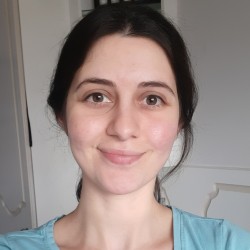
Gloria Yoshkova
Academic and research departments
Cognition, Genes and Developmental Variability Lab, School of Psychology.About
My research project
Motor Development in Williams SyndromeWilliams Syndrome (WS) is a rare genetic syndrome that occurs randomly. It is characterised by developmental delays, physical, cardiac and sensory problems, learning difficulties, and unique personality traits. Motor development is one of the areas where people with WS display delays and life-long difficulties. While motor skills are essential for almost everything we do, there is limited research on the specifics of motor development in infants and children with WS. Our research aims to determine the age range when children with WS achieve motor milestones such as being able to sit, crawl and walk. Furthermore, we will employ novel techniques to study the specifics of motor skills in WS by analysing the quality of movement in the first unsupported gait of children with and without WS. These findings will aid the development of tools and materials to assist parents and practitioners in monitoring children’s development. The findings of this research will inform early interventions and will have relevance to other neurodevelopmental conditions that present with motor impairments.
Supervisors
Williams Syndrome (WS) is a rare genetic syndrome that occurs randomly. It is characterised by developmental delays, physical, cardiac and sensory problems, learning difficulties, and unique personality traits. Motor development is one of the areas where people with WS display delays and life-long difficulties. While motor skills are essential for almost everything we do, there is limited research on the specifics of motor development in infants and children with WS. Our research aims to determine the age range when children with WS achieve motor milestones such as being able to sit, crawl and walk. Furthermore, we will employ novel techniques to study the specifics of motor skills in WS by analysing the quality of movement in the first unsupported gait of children with and without WS. These findings will aid the development of tools and materials to assist parents and practitioners in monitoring children’s development. The findings of this research will inform early interventions and will have relevance to other neurodevelopmental conditions that present with motor impairments.